Our project uses playful learning and interactive games to explore the complex challenges facing agri-food systems, encouraging people to think about sustainability, trade-offs, and possible futures.
23 July 2025
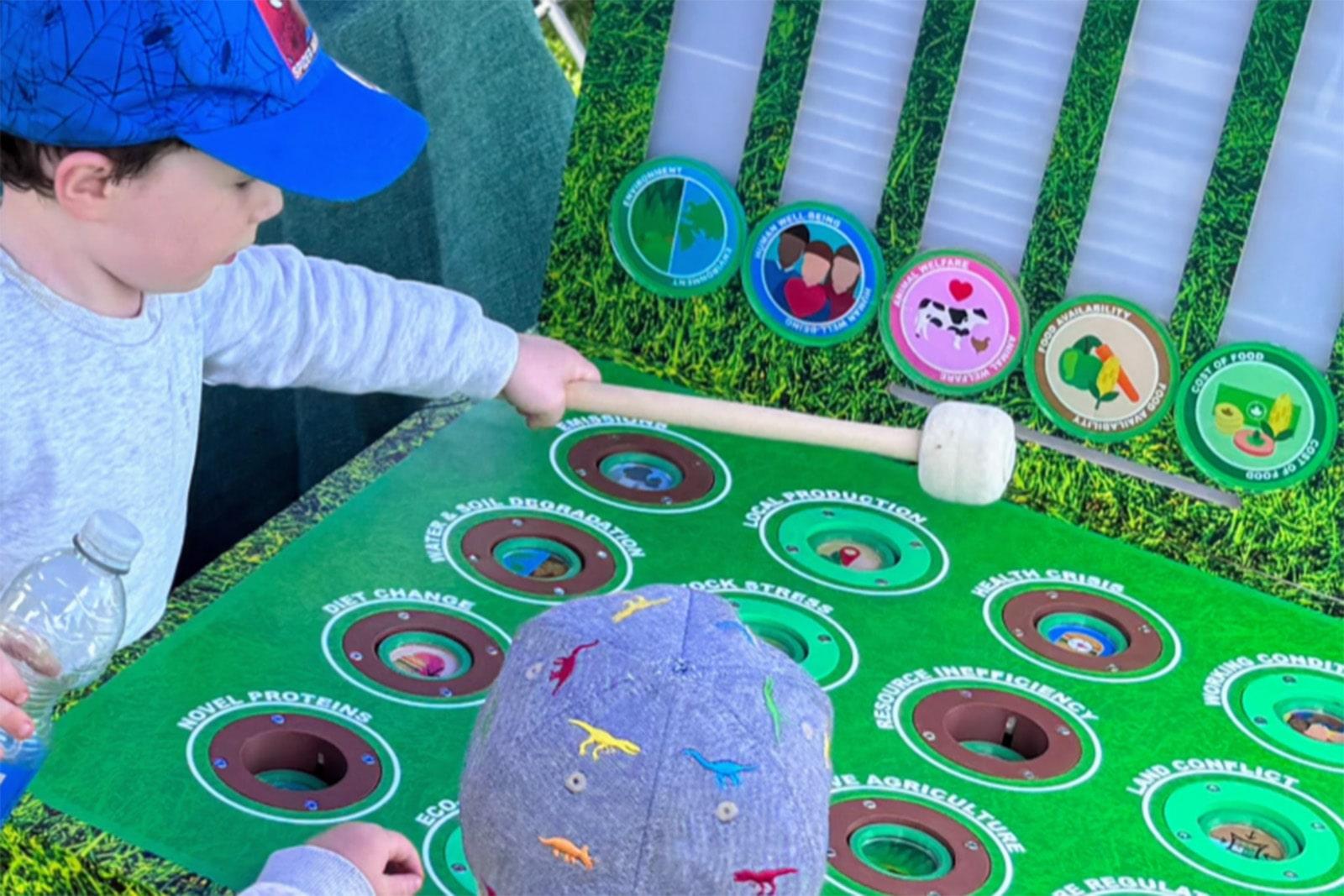
Agricultural and food systems face multiple, connected crises, including climate change, biodiversity loss, food insecurity, and human and animal wellbeing. These overlapping challenges involve difficult trade-offs and require tools that help people explore, discuss, and imagine different ways forward.
Our approach uses playful learning — games and hands-on activities designed to support creative thinking and active decision-making. Rather than focusing on right or wrong answers, these tools invite exploration in a safe, interactive space. They help people think critically, work collaboratively, and better understand the complexity of food systems.
The project is led by Kirsty Blair, Communications Manager and PhD Researcher in the Division of Global Agriculture and Food Systems at the University of Edinburgh. It is part of the TRAnsforming the DEbate about Livestock Systems Transformation (TRADE) UKRI-funded research project, and was launched through a student-led initiative supported by a £5,000 Student Experience Grant and a £1,500 GeoSciences Research Impact and Public Engagement (RIPE) Fund.
These grants have empowered a diverse team of students from across the University, and the wider project team, to develop and test innovative engagement tools while gaining hands-on experience in science communication. The initiative continues to grow, aiming to create interactive tools that support learning, reflection, and dialogue across academic, stakeholder, and community spaces.
Current Games and Activities
- Whac-a-Mole-inspired Food Sustainability Challenge - An arcade-style game where players make quick choices about food system problems and solutions, balancing priorities like health, climate, and productivity to see how trade-offs play out.
- Foodopoly: A Game in Global Food Sustainability - An interactive stage game with audience participation. Players role-play through global food dilemmas, combining competition and collaboration to explore food system strategies.
- Top Trumps-style Food Face-Off - A card game comparing foods on sustainability and nutrition, encouraging reflection on how different choices impact people and the planet.
- How Balanced is Your Plate? - Players reflect on their own diets, comparing to dietary guidelines, prompting conversations about nutrition, balance, and sustainable diets.
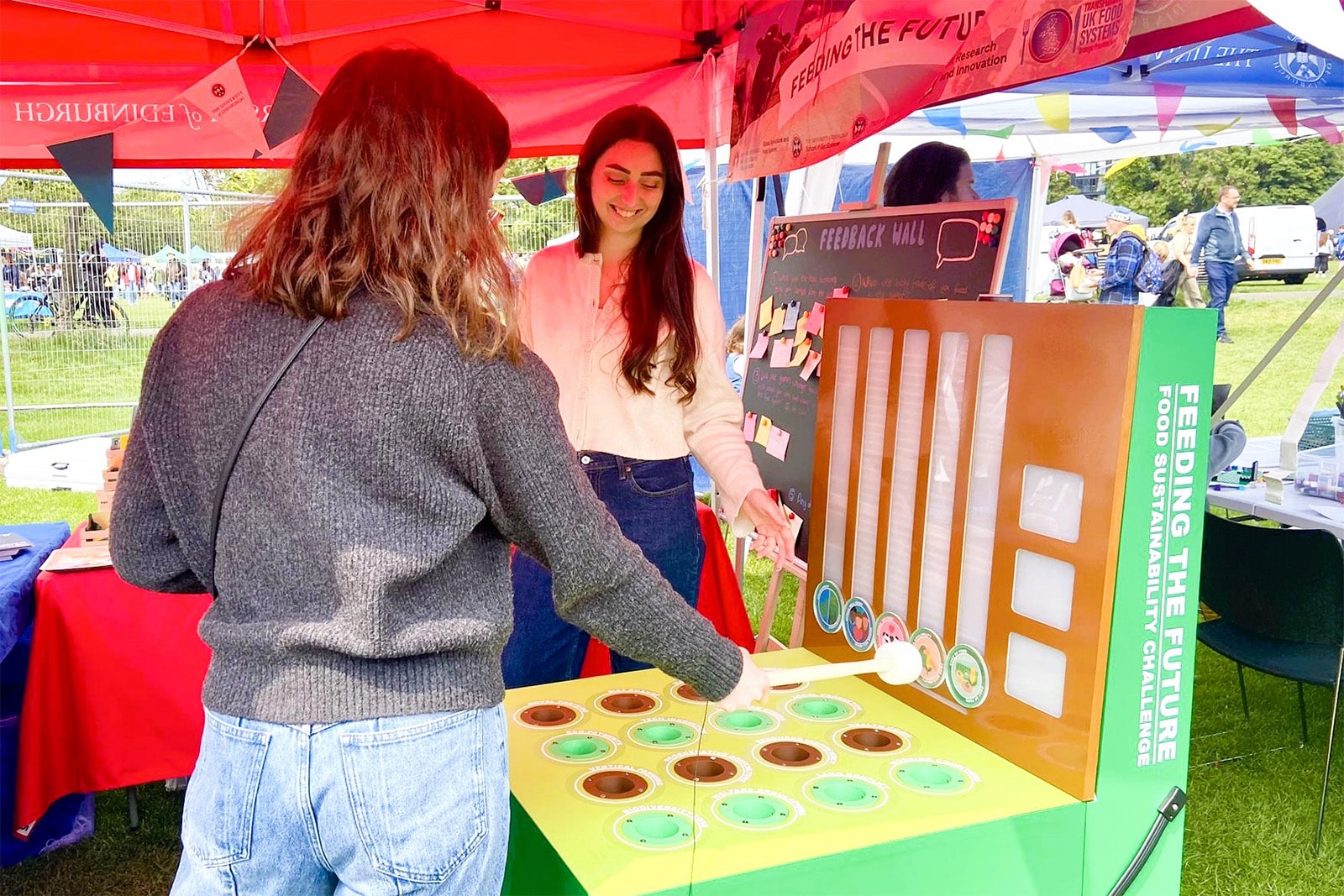
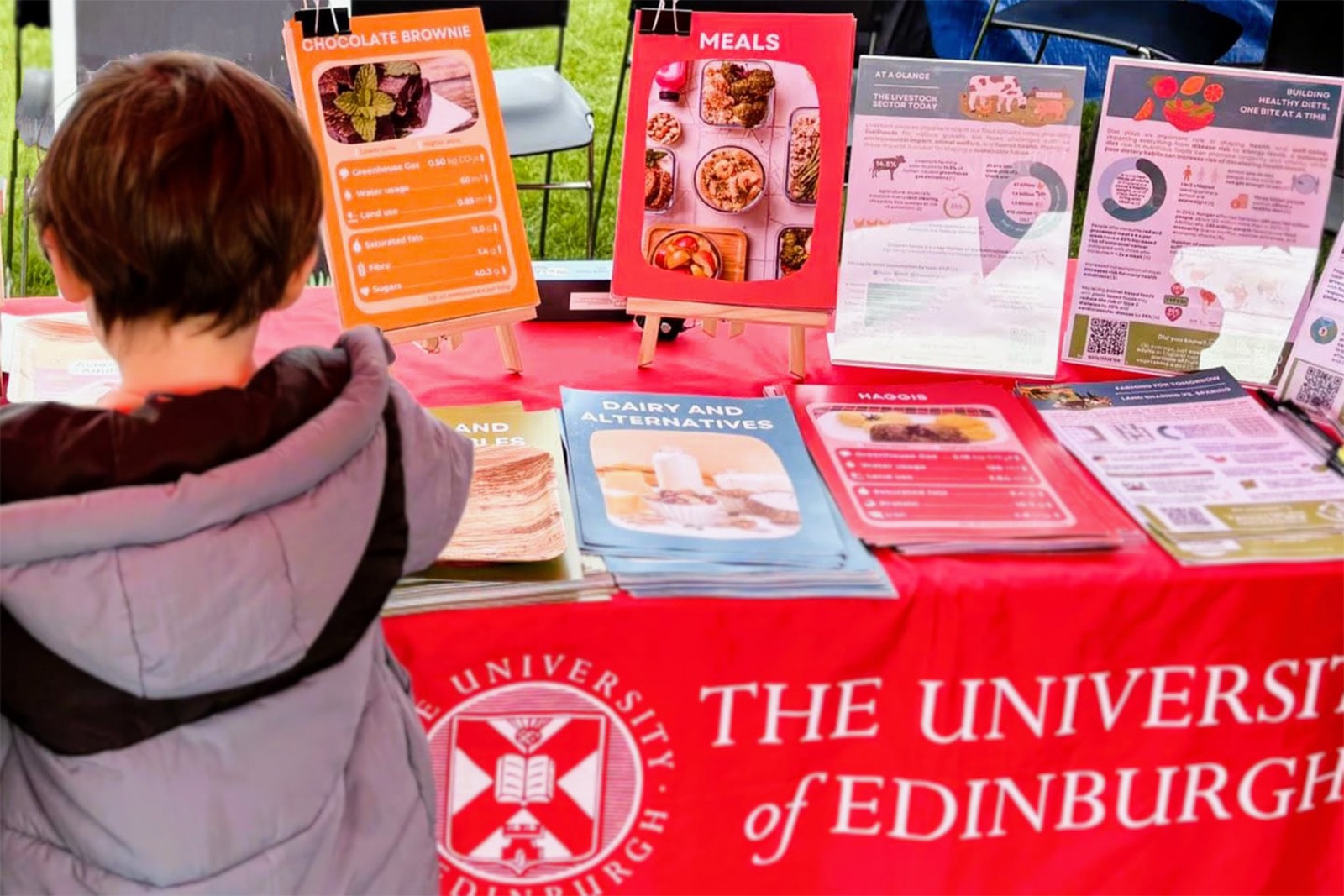
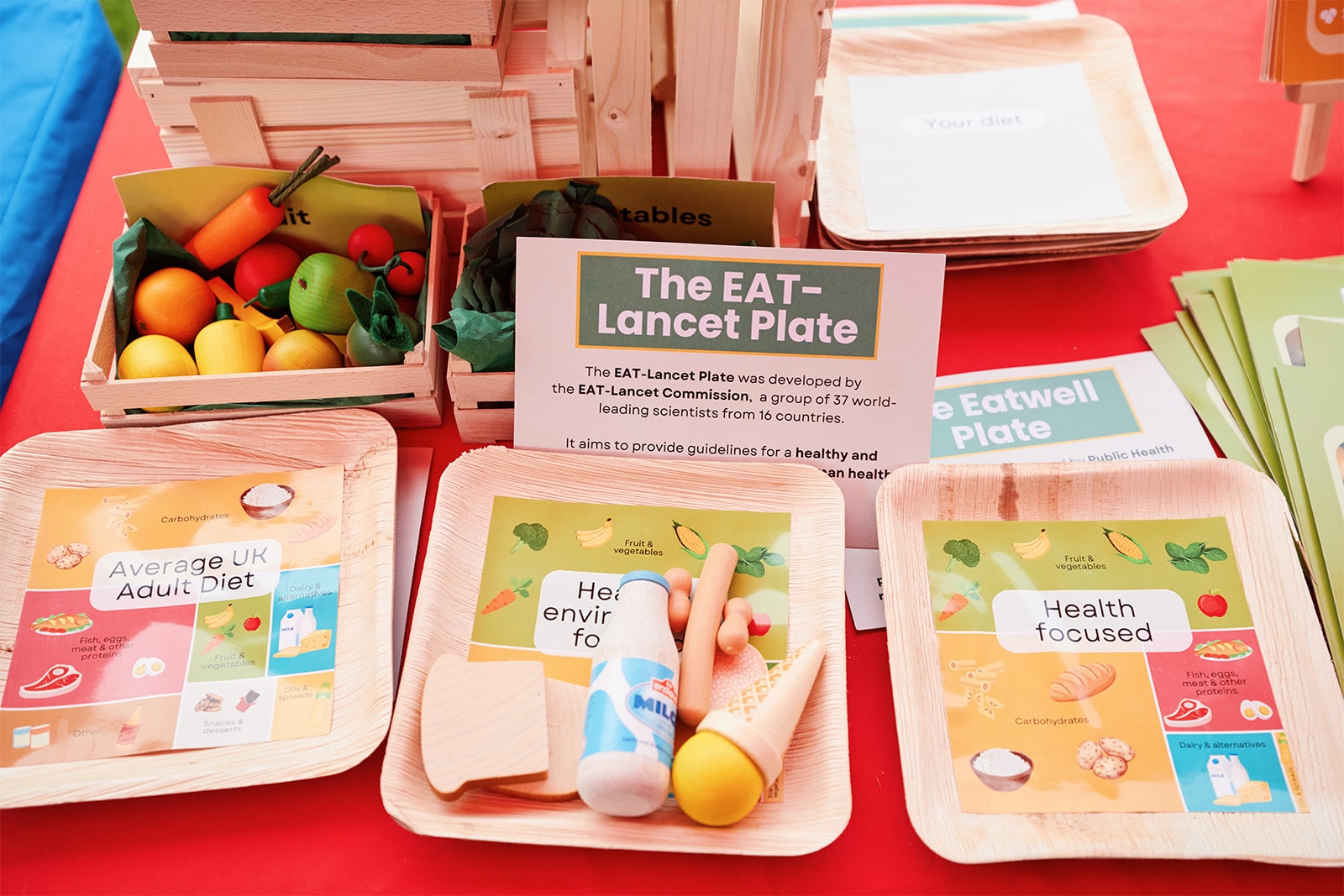
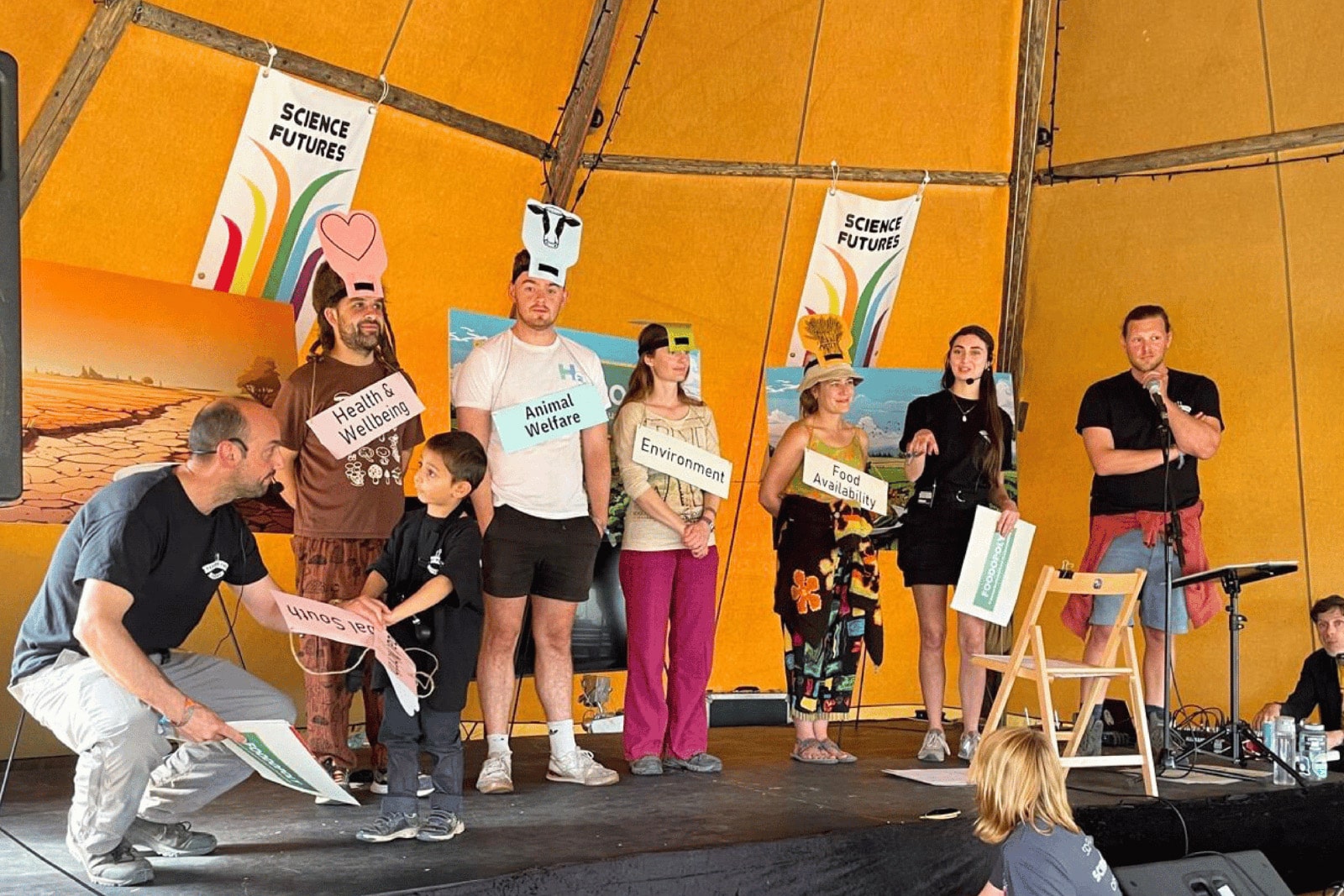
From Festivals to Classrooms
These tools have been tested and refined through live events such as Glastonbury Festival 2024, the Edinburgh Climate Festival, and the Meadows Festival 2025, as well as within an Edinburgh Futures Institute’s postgraduate food sustainability course. We have received positive feedback from participants across public and academic settings, demonstrating the potential of these tools to support both learning and engagement.
What's Next?
We are now working to digitise key games, including the arcade-style sustainability challenge, to make them accessible beyond in-person events. Upcoming activities include the Being Human Festival and the ESRC Festival of Social Science in November 2025, where we will continue to test and improve the games based on participant feedback.
We are also keen to expand the project through new collaborations, whether by adapting these tools or co-developing new ones, to support stakeholder engagement, scenario development, or other participatory processes focused on food system futures.
Get Involved
If you are interested in collaborating, sharing ideas, or exploring funding opportunities to expand this work, please get in touch with Kirsty Blair: